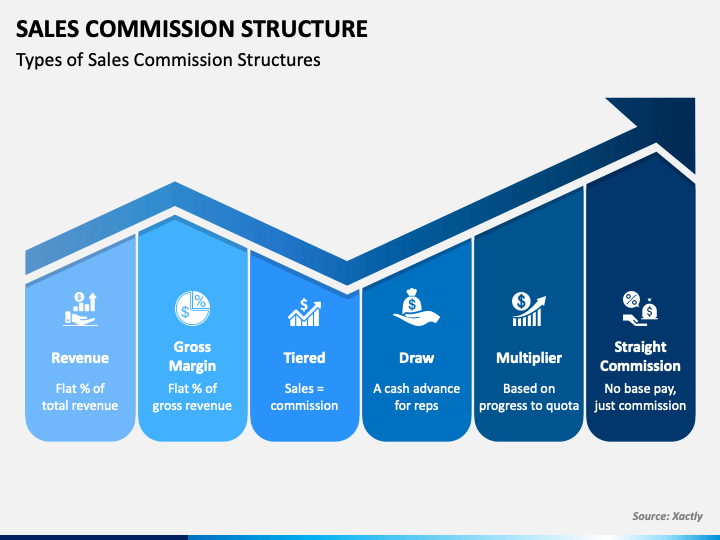Creating a fair recruiter commission structure is crucial for a recruiting business. Your compensation strategy directly impacts your bottom line and your team’s motivation.
Planning requires reflection, data analysis, and deep insights. Given how much your recruiters work to close deals and bring in business, you need to ensure their compensation aligns with the needs of the rest of your agency.
Today, we’ll explore what makes a good recruiter commission structure and share some examples from the recruiting industry.
What is a Recruiter Commission Structure?
A recruiter commission structure is a plan that outlines how an agency compensates their team of recruiters. It’s similar to a sales rep compensation model. Recruiters are paid for their performance, typically based on deals closed, with success measured by placements made or seniority level.
Why is the Recruiter Commission Structure Important?
Implementing a commission-based structure for your recruiters can benefit your agency in several ways:
- It makes recruiters accountable for the number and quality of placements they make, pushing them to hit bigger targets as their earnings depend on their efforts.
- Choosing a structure that works for both the team and the agency helps small agencies plan their resources better.
- Commission-based structures create a result-driven environment.
Despite the benefits, a commission-based compensation structure can lead to recruiters prioritizing quick placements over long-term fit. It’s important to analyze if this approach aligns with your needs and values.

Image Source: sketchbubble.com
Types of Commission Structures for Recruiters
The right structure for compensating your recruiters can vary—there’s no one-size-fits-all approach. Here are some typical structures used in the recruitment industry:
1. Commission with a Base Salary
A base salary plus commission is the most classic form of a recruiting commission structure. Agencies pay their recruiters a base salary plus commission on every successful placement.
Pros:
- More financial stability for the team with a fixed monthly income.
- Promotes a positive work culture without the pressure to earn.
- Encourages teamwork and knowledge-sharing.
Cons:
- Recruiters may settle for the base salary and overlook the benefits of earning a commission.
- Slow performance periods can affect the profitability of your agency.
- Top-performing recruiters might lack motivation where earnings are capped.
2. Tiered Commission
This commission plan offers varying commission rates based on performance levels. It can be used with a base salary or on its own for commission-only reps.
Pros:
- Clear incentives motivate recruiters to surpass their targets and earn higher commissions.
- Ensures recruiters do not become complacent after a few successful placements.
- Helps retain top-performing recruiters.
Cons:
- Can lead to unhealthy competition among recruiters.
- Disparity in earnings between top performers and those struggling to reach higher tiers.
- The pressure to continuously achieve higher tiers can lead to recruiter burnout.
3. 100% Commission
Recruiters get paid only after making successful placements. The agency charges a placement fee to the client, and the recruiter receives a specified percentage of that.
Pros:
- Cost-effective for startups.
- Skilled recruiters can make more money than with a fixed pay package.
- Encourages recruiters to be proactive, resourceful, and self-motivated.
Cons:
- Difficult to retain recruiters who prefer income stability.
- May focus on the quantity of placements rather than quality.
- Less likely to share leads or collaborate, creating a highly competitive environment.
4. Threshold Commission
A threshold is the amount of revenue a recruiter needs to bill before earning a commission.
Pros:
- Avoids mediocre performance.
- Aligns recruiters’ efforts with the company’s financial goals.
Cons:
- Recruiters have to wait until they can actually earn some commission.
- Higher thresholds can set unrealistic targets for recruiters.
- Recruiters with lower base salaries may find it harder to surpass the fixed threshold.
5. Draw Commission
Recruiters receive an advance payment against their future commissions. It can be recoverable or non-recoverable.
Pros:
- The fixed draw offers a safety net, while the commission component motivates pushing limits.
- Serves as a benchmark for recruiters to target every month.
Cons:
- Recoverable draw may inflict debt on underperforming recruiters.
- Draw commissions are often set lower than base salaries, only guaranteeing minimum payouts.
How to Set Up a Commission Structure for Your Agency
1. Assess Your Current Recruitment Ecosystem
Analyze your current recruitment process and team dynamics to identify bottlenecks in your compensation models and productivity levels.
2. Decide the Level at Which the Commission Kicks In
Settle on a fair base salary and determine when to introduce commissions. Ensure the cost incurred by your agency in hiring a recruiter is covered before paying commissions.
3. Understand Your Cost of Seat
Calculate the total cost to accommodate each recruiter, including salaries, benefits, office rent, utilities, technology, training, marketing, and miscellaneous expenses.
4. Setup Frequency of Payment and the Timeline
Determine how often to roll out commissions to your recruiters, considering your average deal cycle.
Best Practices:
- Survey your team and understand their preferences.
- Consider what is standard in your specific recruitment market.
- Analyze your deals cycle with historical data.
How Does Split Commission Between Multiple Recruiters Work?
When multiple stakeholders are involved, split the commission based on their level of contribution. Factors to consider:
- Who gained the business?
- Who found the candidate?
- Who recruited the candidate?
Scenarios:
- When 2 recruiters are involved.
- When an account manager is involved.
- Based on the level of seniority of recruiters.
Recruitment Commission Structure Examples
1. Commission Based on Cumulative Net Fee Income (NFI)
- No minimum threshold for recruiters to start earning commissions.
- Commission is paid every month.
- Higher billing = higher commission.
2. Commission Based on Gross Margin
- Commission is paid every month.
- No minimum threshold for recruiters to start earning commissions.
- Incentivizes recruiters to increase their gross pay by billing higher.
3. Commission Based on Total Billings
- Commission is paid monthly.
- Minimum threshold for recruiters to start earning commissions.
- Higher billing = higher commission.
4. Commission Based on the Team’s Target
- Commission is paid monthly.
- Minimum threshold for recruiters to start earning commissions.
- Commission ranges from 10% to 30%.
Ready to Create Your Own Recruiter Commission Structure?
Creating a recruiter commission structure can be daunting at first. But, with the right resources and understanding, you can always build a system to reward your best-performing recruiters!
Remember, commission structures are not one-size-fits-all. Tailor your approach to fit your organizational goals, team dynamics, and individual motivations.
Apply these insights and build a commission structure that rewards hard work and fosters a culture of excellence!
Tips for Employers: Recruiting Guides




